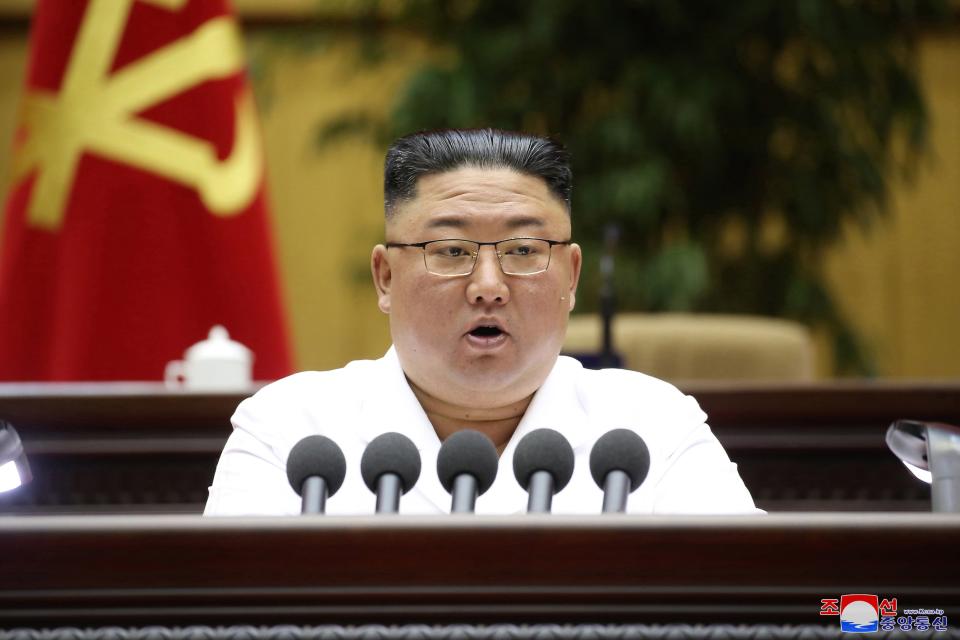Kim Jong-un raises fears of food shortages in North Korea

Kim Jong-un called upon part workers to prepare for ‘arduous march’ at the 6th Conference of Cell Secretaries of the Workers’ Party of Korea (WPK) in Pyongyang
(EPA)North Korean leader Kim Jong Un has raised the threat of food shortages in his country, comparing the current situation to a deadly 1990s famine.
Speaking at the closing ceremony of the party conference, Mr Kim asked people to wage another “arduous march” – a term used to refer to a devastating famine at the end of the last century where some people ate tree bark to survive.
“There are many obstacles and difficulties ahead of us, and so our struggle for carrying out the decisions of the Eighth Party Congress would not be all plain sailing,” Mr Kim told ruling party members, according to the Korean Central News Agency.
His admission of a deepening crisis - he said North Korea is facing its “worst-ever” crisis - came as human rights groups issued warnings of food shortages due to the coronavirus pandemic and economic instability.
Trade with its biggest economic partner, China, has fallen almost 80 per cent with zero imports of food and medicines during the coronavirus pandemic.
Greater international economic sanctions by the US and Japan to pressure Kim’s regime to abandon its nuclear programme has added to the woes.
Mr Kim added: “I made up my mind to ask the WPK (Workers’ Party of Korea) organisations at all levels, including its Central Committee and the cell secretaries of the entire party, to wage another more difficult ‘arduous march’ in order to relieve our people of the difficulty, even a little.
The North Korean leader on 6 April acknowledged that the country is facing “worst-ever situation” while he slammed the party’s grassroots for shortcomings.
He referred to the infamous famine that is also called the “Arduous March” or the “March of Suffering”, when an estimated three million people were killed between 1994 and 1998. It was a period of mass starvation when food shortages hit after the collapse of the Soviet Union.
According to a recent report by Human Rights Watch, there have been signs of food shortages.
Severe floods last year also affected agricultural production and aggravated the situation of food shortages, according to observers.
However North Korea monitoring groups have yet not confirmed the reports of mass starvation or a humanitarian disaster.
North Korea has claimed that so far there is no single case of coronavirus in the country as it has kept its border shut but experts doubt the claim.
Read More
Couple unknowingly vandalise $500,000 painting in Seoul, South Korea
China’s rush to harness Himalayan water risks nuclear conflict
Japan social media outrage over Olympic athlete vaccine priority

 Yahoo News
Yahoo News 